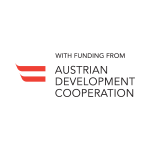
Objectives
The Let’s Work partnership in Zambia has focused on strengthening analytical and operational approaches to assist the implementation of the government’s jobs strategy. The objectives of the Let’s Work Zambia program were to:
- Review existing jobs operations in Zambia and develop a set of analytical tools to better understand labor market, value chain, and business dynamics as well as the main incentives and constraints to job growth and labor productivity.
- Present actionable proposals on investment and advisory solutions that address these constraints in specific subsectors and in linked industries.

Key Activities
The World Bank undertook a comprehensive review of its jobs portfolio as well as a diagnostic that analyzed both the multisector jobs challenges and identified potential strategies to stimulate job creation and improve labor market linkages.
It also developed an agribusiness value chain report focused on the poultry and aquaculture subsectors to illustrate job-related growth scenarios with livestock and animal feed value chain development.
Under the Jobs Action Plan, the World Bank has provided policy recommendations on creating more, better-quality, and more-accessible jobs that the government of Zambia has taken on board. The government has also requested additional technical assistance from the World Bank.

Outcomes
These outputs have directly contributed to the World Bank’s Systematic Country Diagnostic and Country Partnership Framework on Zambia and enhanced engagement with the government on jobs-related priorities, policies, and strategies. Furthermore, the program has built capacity among government counterparts, statisticians, and research groups on jobs data analysis and reporting and has added value to the design and expansion of active projects in social protection and labor, agribusiness and trade, environment, and infrastructure.
Participants from the program have identified several key lessons. These included strategies to improve the value chains survey design using additional wage-, gender-, and productivity-related metrics. They also appreciated the need to leverage the sectoral expertise of institutional partners and other comparative advantages during policy engagement with government ministries.













